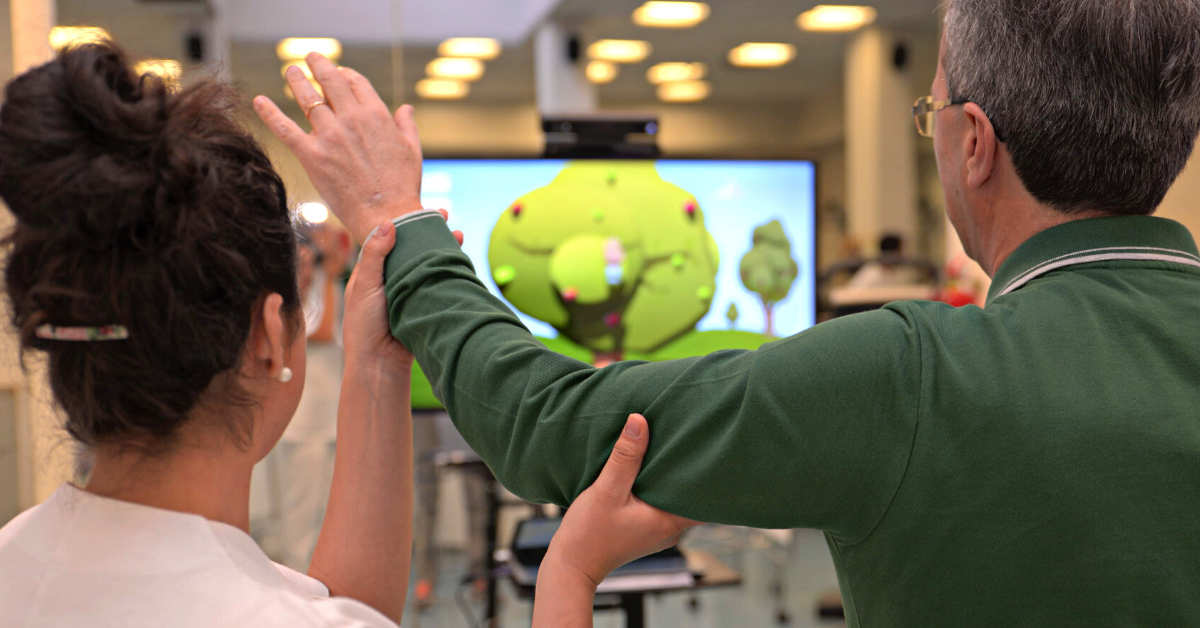Every year on September 8, the World Day of Physiotherapy is celebrated, established in 1996 on the initiative of the WCPT (World Confederation for Physical therapy). The aim of the day is to enhance the work that physiotherapists carry out, for patients and the whole community, as well as to raise public awareness of the importance of the physiotherapist profession.
Who is the physiotherapist? What was the role of physiotherapists during the Covid-19 pandemic? What should a student potentially interested in the physiotherapy vocation know?
On the day dedicated to them, we report a reflection by Dr. Elisabetta Sarasso, Professional Tutor of the Degree Course in Physiotherapy and of the Master's Degree Course in Rehabilitation Science for Healthcare Professions, and of Dr. Andrea Tettamanti, Director of Professional Didactics of the Degree Course in Physiotherapy and Director of Didactics of the Master's Degree in Rehabilitation Science for Healthcare Professions.
.jpg?width=800&name=Giornata_mondiale_fisioterapia_UniSR%20(1).jpg)
A brief history of physiotherapy
Physiotherapy has very ancient origins. Hippocrates, considered the father of medicine, had already understood the importance of manual techniques [1] in the care of patients. Throughout history, many other illustrious personalities of medicine such as Galen [2] Avicenna and Duchenne have emphasized the usefulness of practices [3] such as manipulations and therapeutic exercise, but it is only at the beginning of the 1800s that the profession of the modern physiotherapist was born.
From that moment on, the figure of the physiotherapist was gradually recognized in various states of Europe, in the United States of America, in Australia. In the second half of the 1900s, the first scientific studies on the effectiveness of rehabilitation were published. To date, physiotherapy is recognized worldwide as a science thanks to the contribution of physiotherapists who in the last 30 years have contributed and continue to contribute to the collection, analysis and publication of scientific data in support of the profession.
.jpg?width=800&name=Giornata_mondiale_fisioterapia_UniSR%20(3).jpg)
In Italy, the physiotherapist profession was officially recognized in the 1960s [4] and the professional profile of the physiotherapist is defined in the Ministerial Decree 741 of 1994 which states: "The physiotherapist is an health worker... who carries out, independently, or in collaboration with other health professionals, interventions for prevention, treatment and rehabilitation in the areas of motor skills, higher cortical functions, and those visceral consequent to pathological events...".
From this definition it is clear how diversified the work of a physiotherapist can be, who can in fact be specialized in musculoskeletal, neurological, sports, cardiorespiratory, perineal physiotherapy and much more. We must also not forget the possibility of working in the field of research in physiotherapy and teaching, which are essential for the development and scientific updating of the profession.
.jpg?width=800&name=Giornata_mondiale_fisioterapia_UniSR%20(4).jpg)
The physiotherapist today
In recent years, the figure of the physiotherapist has become increasingly important in our society. In fact, the increase in life expectancy has led to the inevitable increase in diseases related to aging that require rehabilitation.
Additionally, physiotherapists played a key role in the management of COVID-19 patients during the SARS-CoV-2 pandemic. The early mobilization of the patient, the administration of non-invasive ventilation, the prevention of neuromotor complications, the reconditioning to exertion, are just some of the practices of physiotherapy competence that have proved indispensable to treat these patients.
Being a physiotherapist is more than you may think. It is a job that involves reasoning skills, logic, manual skills, empathy and sometimes even the ability to manage complex situations, but the satisfaction of seeing a patient improve thanks to our work is priceless and gives those emotions that make us love our work so much!
.jpg?width=800&name=Giornata_mondiale_fisioterapia_UniSR%20(5).jpg)
References
[1] Hyppocrates I, “De Articulis”
[2] Galen, “De Sanitate Tuenda”
[3] Wharton MA. Health Care Systems I; Slippery Rock University. 1991
[4] Legge 132 del 1968; Legge 128 del 1969, art. 20 e 42

